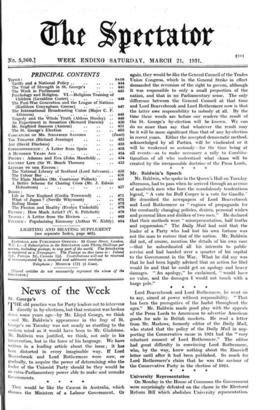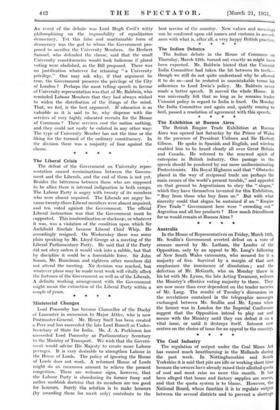University Representation
On Monday in the House of Commons the Government were surprisingly- dtteitt4 on the .clause in the Electoral keforin nfir ibolisbes- University iepresentation. An event of the debate was Lord Hugh Cecil's witty philosophizing on the impossibility of equalitarian democracy. Yet this false and unattainable form of democracy was the god to• whim the Government pro- posed to sacrifice the University Members. Sir Herbert Samuel, who defended the clause, said that the small University constituencies would• look ludicrous if plural voting were abolished, as the Bill proposed. There was no justification whatever for retaining " a University privilege." One may ask why, if that argument be true, the Government preserve the privilege of the City of London ? Perhaps the most telling speech in favour of University representation was that of Mr. Baldwin, who reminded Labour Members that they had always wished to widen the distribution of the things of the mind. That, we feel, is the best argument. If education is as valuable as it is said to be, why dispense with the services of very highly educated recruits for the House of Commons ? These services cost the nation nothing, and they could not easily be enlisted in any other way. The type of University Member has not the time or the liking for the turmoil of the ordinary constituency. In the division there was a majority. of four against the clause.



















































